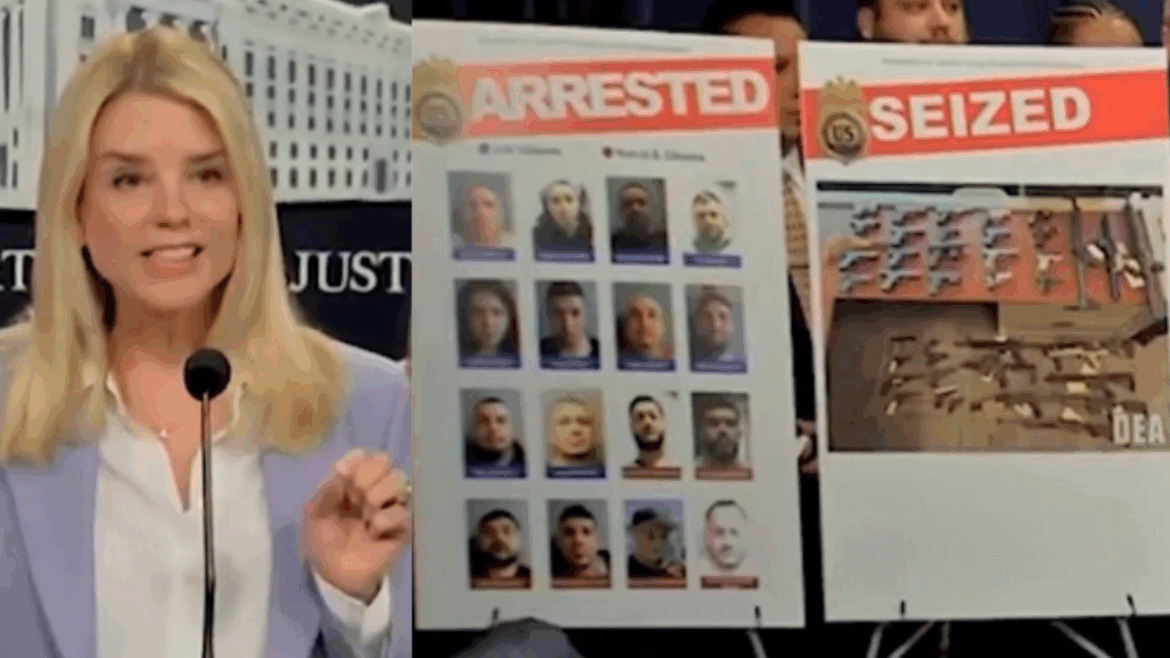Nation’s Largest Fentanyl Seizure Signals New Chapter in War on Drugs
Attorney General Pam Bondi made a historic announcement Tuesday: federal agents have seized a staggering 11.5 kilograms of fentanyl—equivalent to over 3 million lethal pills—in what she declared as “the largest seizure in our nation’s history.”
The deadly synthetic opioid, often disguised in counterfeit pills, continues to ravage communities across the United States. Fentanyl is now the leading cause of death for Americans aged 18 to 45, a grim milestone that began under the Biden administration’s porous border policies.
Cartel Takedown Spans Four States
In addition to the drug seizure, six members of the infamous Sinaloa Cartel were arrested during a multi-agency sting operation. The ringleader, Alberto Salazar Amaya, was living in Salem, Oregon—illegally.
“These are the pills in the bags right there,” Bondi said, gesturing toward physical evidence at the press conference. “The DEA seized approximately 3 million fentanyl pills… The head of this Sinaloa organization was here in the country illegally.”
Authorities recovered not only drugs but millions of dollars in cash, luxury vehicles, and high-end assets spread across Albuquerque, Phoenix, and Utah, showing just how deeply entrenched the cartel’s infrastructure has become inside the U.S.
Trump’s Administration Responds Aggressively
The announcement follows Bondi’s earlier report that over 22 million fentanyl-laced pills have been seized in the first 100 days of President Trump’s second term, a monumental escalation in enforcement and interdiction efforts compared to previous years.
Bondi emphasized that the success was made possible by collaboration across federal, state, tribal, and local law enforcement agencies—spearheaded by the DEA.
A Turning Point in the Crisis?
As the nation reels from fentanyl’s death toll and political leaders scramble for solutions, Bondi’s press conference sends a clear message: a new war on fentanyl has begun. And this time, the gloves are off.
“This is not just a drug crisis,” Bondi said. “It’s a national security crisis. And under this administration, we’re treating it like one.”

